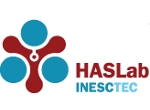PPAEL
Team: Luís Soares Barbosa and Sara Fernandes
Abstract: Commons-based peer-production is the model of economic pro- Internet, into large, meaningful projects mostly without traditional hierarchical organisation. Typical instantiations of peer-production models are Free/Libre Open Source Software (FLOSS) projects. FLOSS projects can be seen as collaborative learning environments in which knowledge is built through social constructivism. This project aim to develop an e- Learning framework for teaching Software Engineering soft and hard skills within a peer-production environment that fosters collabora- tive learning and allows students to enable effective learning of Soft- ware Engineering through strong participation in real-world software projects. The e-Learning framework will be implemented by a net- work of collaborating tertiary institutions and will be incorporated in the new UNU postgraduate programmes. The PPAEL project consists of three steps: analysis of the learning processes and identification of learning patterns occurring within FLOSS communities and based on the outcome of this analysis, conceptualisation of the e-Learning framework; experimentation of the e-Learning framework on a selection of FLOSS projects used for geographically distributed pilot studies in which students participate in such FLOSS projects both as learners, by exploiting the FLOSS community as an e-Learning environment, and as researchers, by analysing the FLOSS phe- nomenon in terms of its learning capabilities; creation of new FLOSS project, in which the FLOSS paradigm is extended by incorporating innovative technologies, usability support and e-Learning tools to facilitate students’ activities, and their use as pilot projects in formal curricula.

